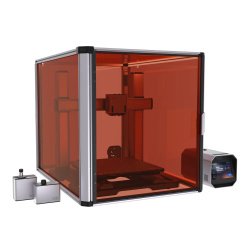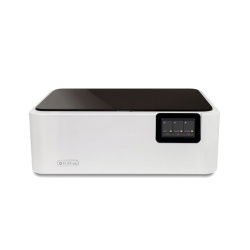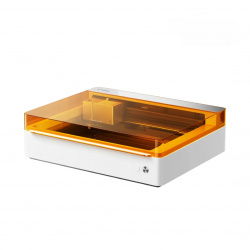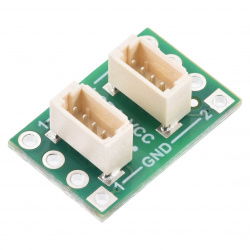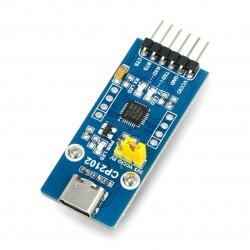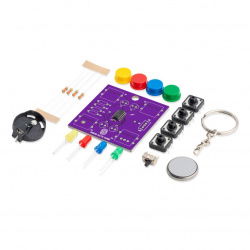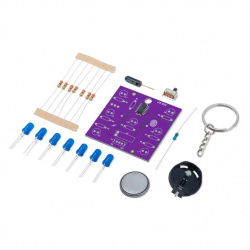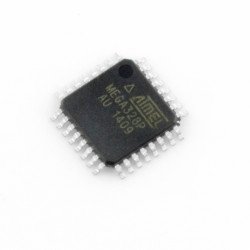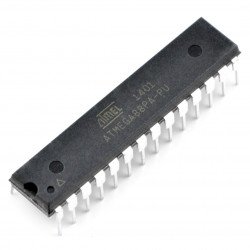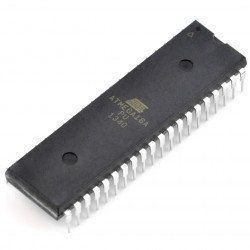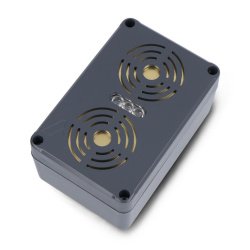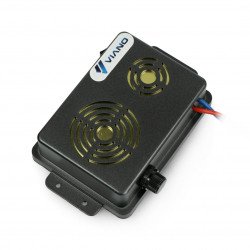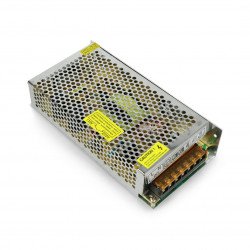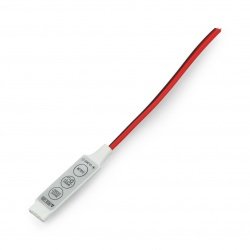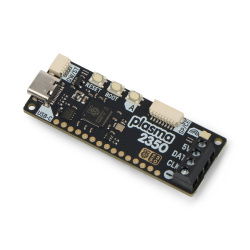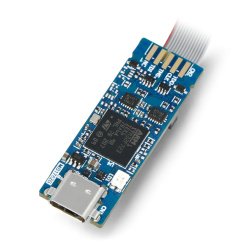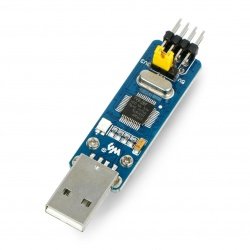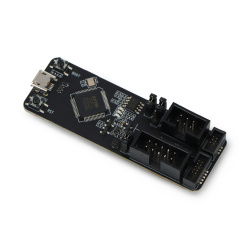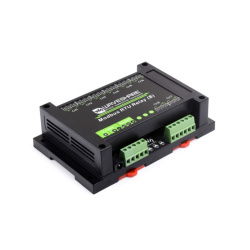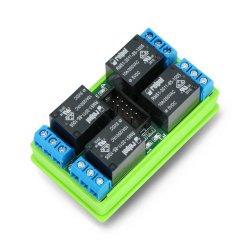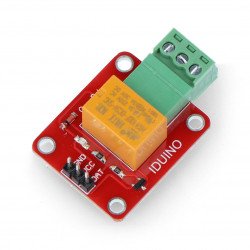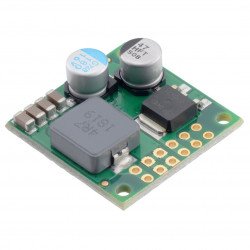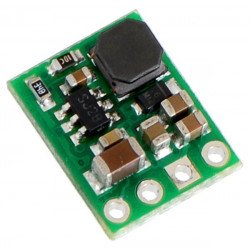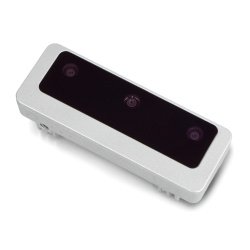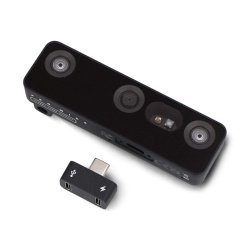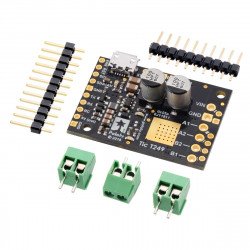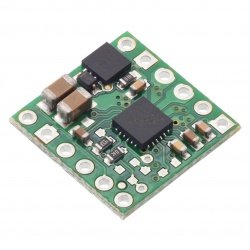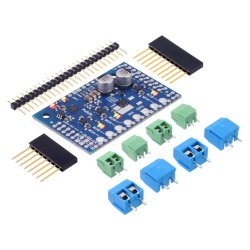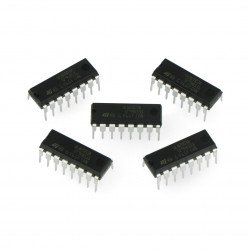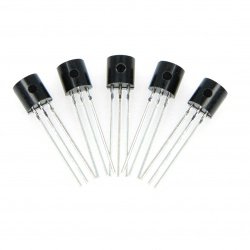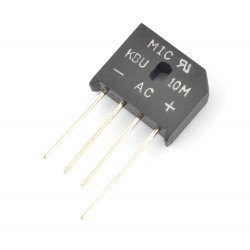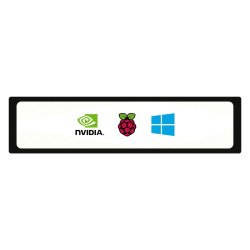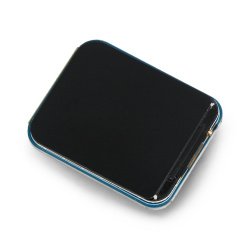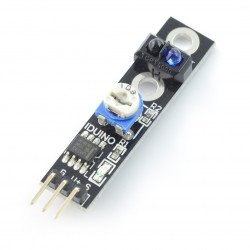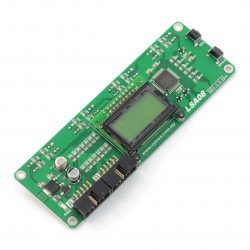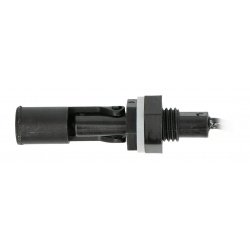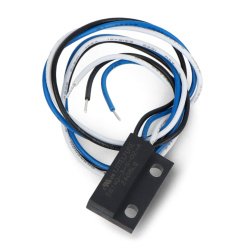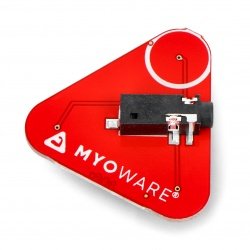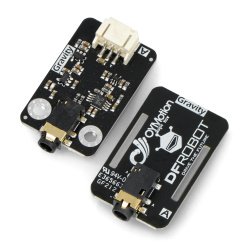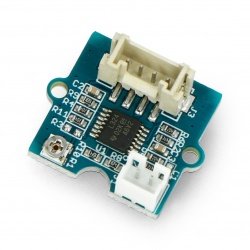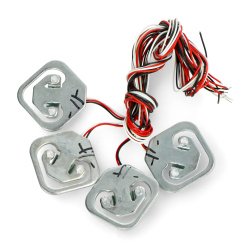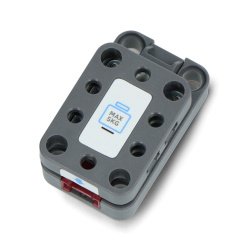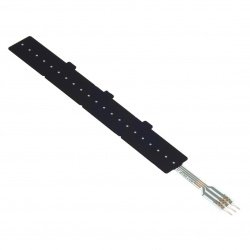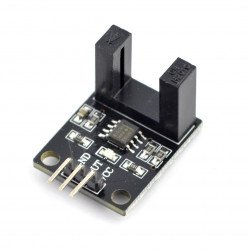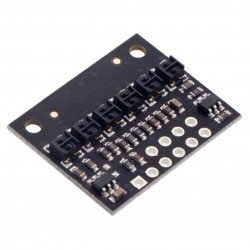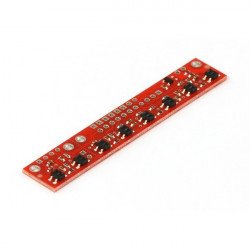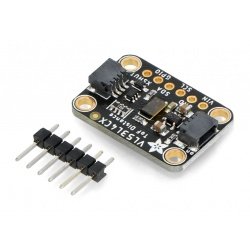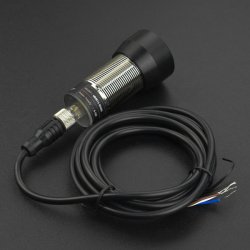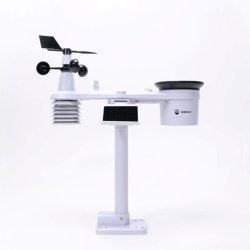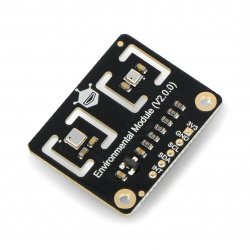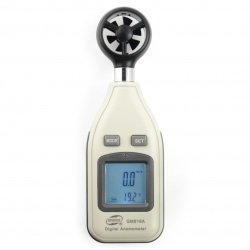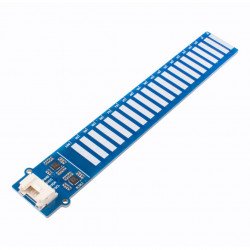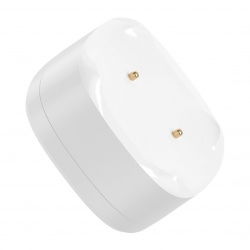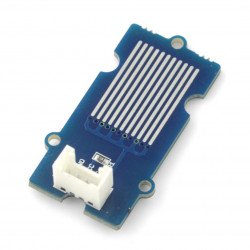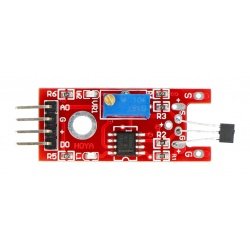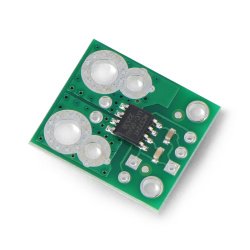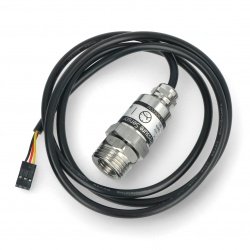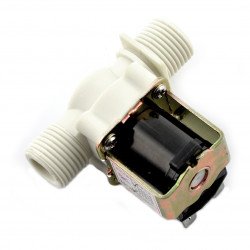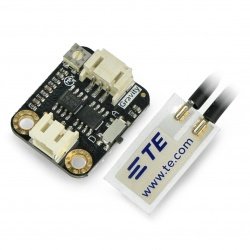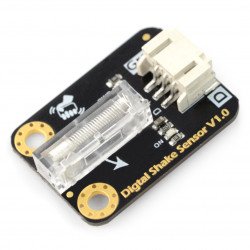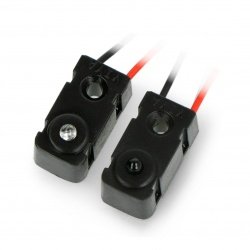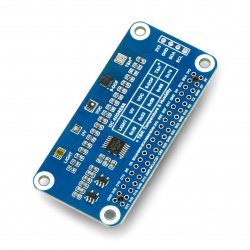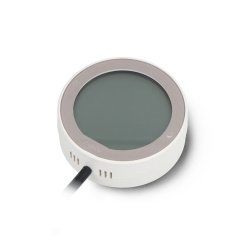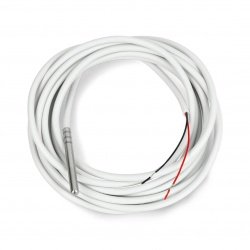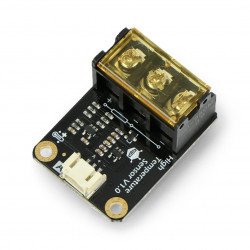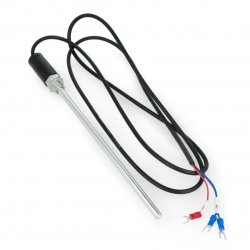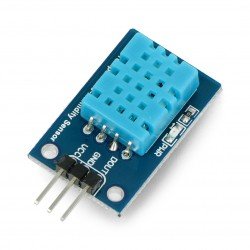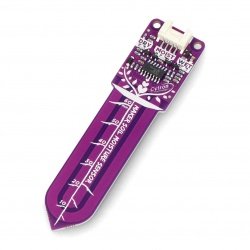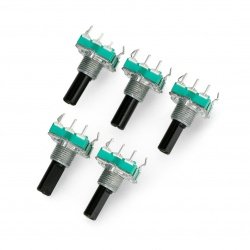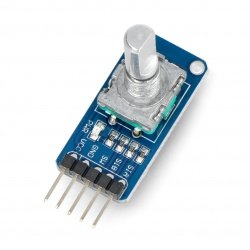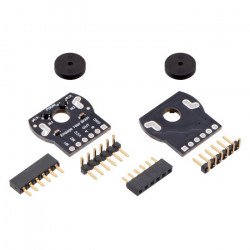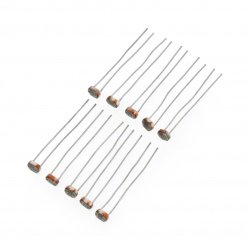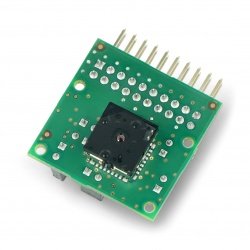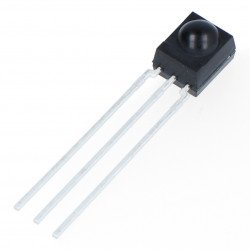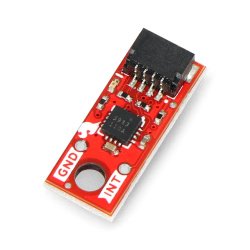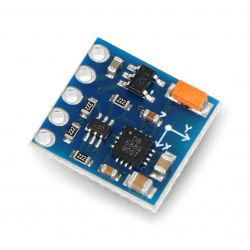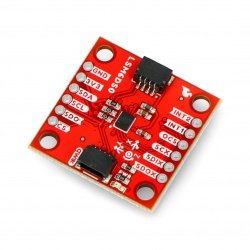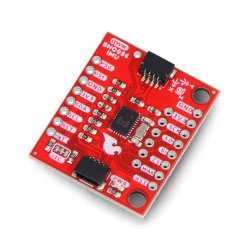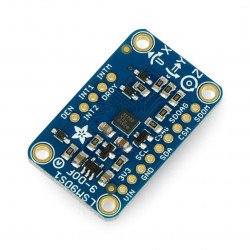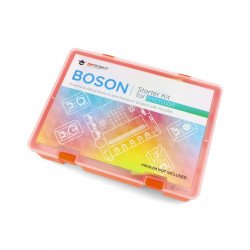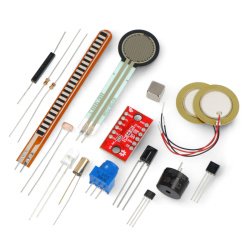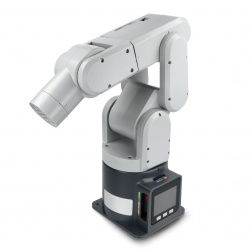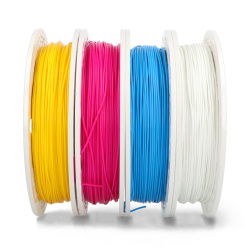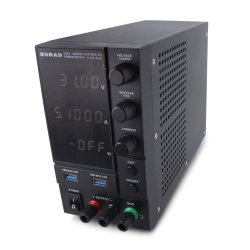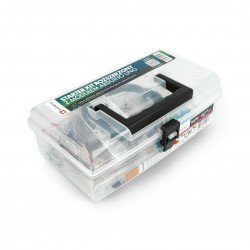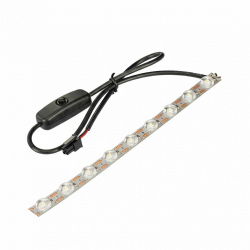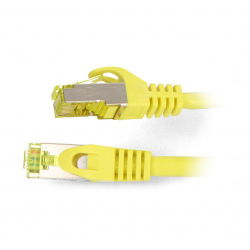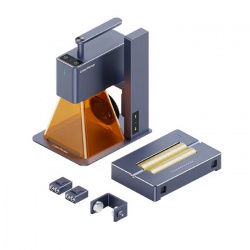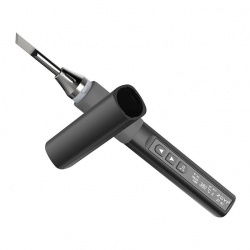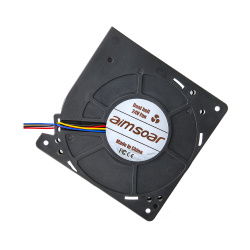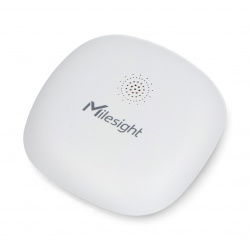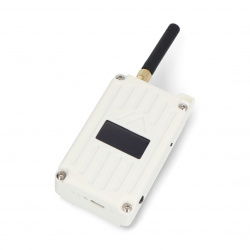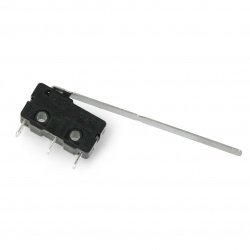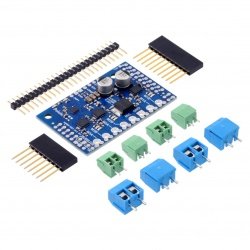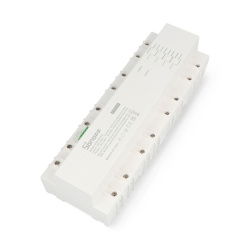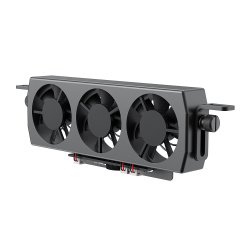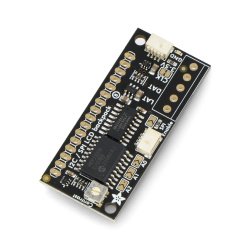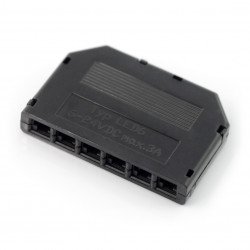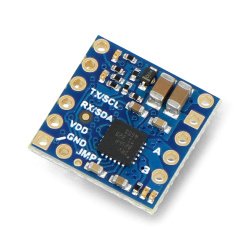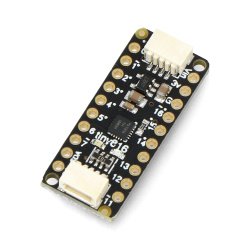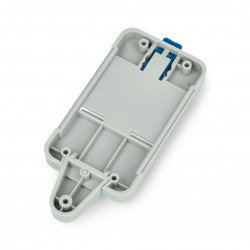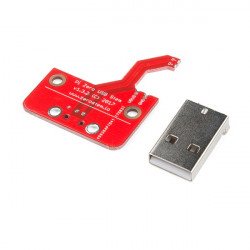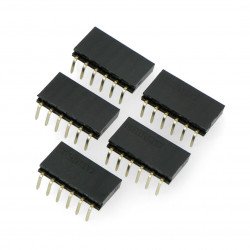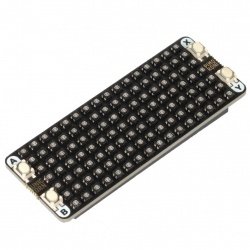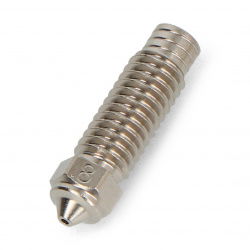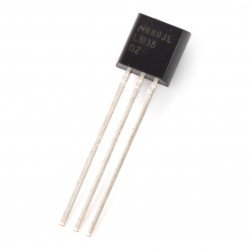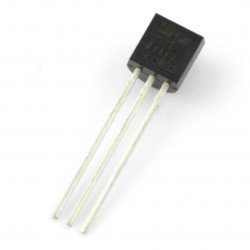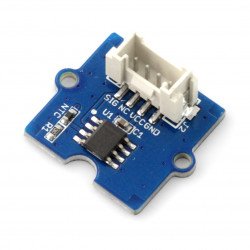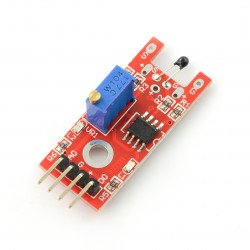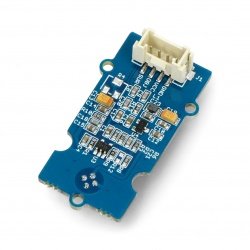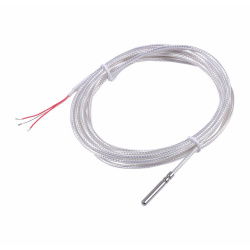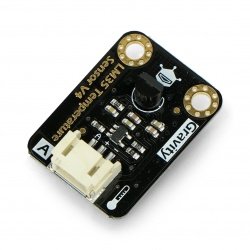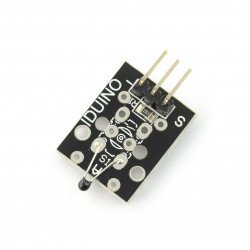Analog temperature sensors allow you to easily implement the temperature measurement function for our project. Sensor output is analog, the size of the plate is proportional to the measured value. The temperature rise will make it so that the sensor output appears, for example, a higher voltage or resistance.
Analog temperature sensors
LM35DZ temperature sensor - analog THT
Analog thermometer, in which the output voltage is proportional to the measured temperature from the range of: 0°C to 100°C. It is powered with the voltage from 4 V to 30 V.Temperature sensor TMP36GT9Z - analog THT
Analog thermometer, in which the output voltage is proportional to the measured temperature from the range: -40 °C to +120 °C. It is powered with the voltage from 2.7 to 5.5 V.Grove - analog NTC temperature sensor
Analog sensor is compatible with Arduino and Raspberry Pi. It is powered with the voltage from 3.3 V to 5 V. It can measure temperature in the range from -40 °C to 125 °C with...Gravity - Analog temperature and humidity sensor - SHT30 - DFRobot DFR0588
Analog temperature and humidity sensor produced by DFRobot. The module is equipped with a high quality new generation SHT30 chip from Sensirion. It uses CMOSens...Gravity: Analog High Temperature Sensor
Analog sensor of the high temperature, operating in the range from 30 °C to 350 °C. It is powered with a voltage of 3.3 V to 5.5 V. The kit has a PT100 probe.Temperature sensor - thermistor NTC-MF52 with potentiometer - Iduino SE017
Module with temperature sensor equipped with a thermistor NTC-MF52. For control, used is an analogue or digital output. It detects the temperature in the range from -55°C to...Module with LM35 temperature sensor
The module with analog temperature sensor LM35 . Powered with the voltage of the 5 V. It can read the temperature in the range from -55°C to 150°C with the accuracy of up to...Grove - infrared thermometer OTP-538U IR
Module from the Grove series, based on a sensor OTP-538U which, to measure the temperature, is using the analysis of infrared radiation in the range from -10 °C to 100 °C. It...High temperature measuring probe PT1000 in stainless steel - 4x30mm - Seeedstudio 314010819
PT1000 temperature sensor with a 304 stainless steel probe, resistant to high temperatures and corrosion. It offers a wide temperature measurement range from -50°C to 300°C...DFRobot Gravity - analog temperature sensor LM35
Analog LM35 sensor working with Arduino and Raspberry Pi. It is powered with the voltage from 3.3 V to 5 V. it can measure temperature in the range from 0 ℃ to 100 ℃. The...Temperature sensor - thermistor NTC-MF52 - Iduino ST1147
Module with temperature sensor equipped with a thermistor NTC-MF52. In order to read values from the sensor, connect it to the analog signal of the microcontroller. It detects...See also
Analogue temperature sensors
Analogue temperature sensors work by converting temperature information obtained from the environment into a specific electrical quantity (in most cases voltage) - unlike digital sensors, where a binary signal is received at the output. Since this quantity is proportional to the measurement value read by the sensor, measuring it is sufficient to know the temperature in the sensor's environment. For example, in a popular LM35 sensor, the voltage change is linear and is 10 mV/°C, which means that the voltage increase is 10 mV for each degree Celsius (for example, if 10°C is X volts, at 11°C, the sensor will output a voltage of X volts plus 10 mV). The popularity of analogue temperature sensors has many reasons - they can include, among others, a relatively low price, reliability or the lack of necessity to have a microcontroller to read the measurement result.
Application of temperature sensors
Temperature sensors are used in many projects and electronic devices. They are an indispensable element of household appliances (e.g. such as kettle, washing machine, dishwasher or refrigerator), as well as safety systems (fire-fighting installations), heating, air-conditioning or home automation systems. Analogue temperature sensors work extremely well with some minicomputers, for example the popular Arduino, which makes these elements often used simultaneously. A good example is a self-made temperature control system in an intelligent building, which will be based on the use of Arduino and analogue temperature sensors collecting data. Such an installation can transmit the readout information to the heating or air conditioning devices, which will be activated or deactivated as required. Analogue temperature sensors are also ideal for projects such as thermometers or weather stations.
What to pay attention to when choosing?
Before deciding on a particular model, it is worth checking which sensor parameters are most important for the application, which will allow you to choose a proposal perfectly suited to a particular project. Like other sensors, temperature sensors have a strictly defined measuring range, which should not be exceeded in order not to damage the element. Usually it is a safe working temperature and ranges from about -50°C to about 120-150°C. It is also worth noting the resolution of the sensor, i.e. the accuracy with which it reads the measured temperature (usually from ±0.5°C to ±2°C). Power supply voltage is also important because it determines the correct operation and durability of the element (applying too high a voltage can irreparably damage the sensor). The way of mounting the sensor may be different - there are analogue temperature sensors made in THT technology (threaded), but also SMD elements (for surface mounting) or models equipped with different types of connectors.
What products can you find in this category?
In this category you will find a wide range of analogue temperature sensors and temperature measurement modules that communicate via an analogue signal. We offer sensors with different measuring ranges (ranging from -50°C to as much as 600°C) and accuracy, so that you will easily find a model perfectly suited to your project. There is a wide range of THT and other standards available. A very attractive proposal are modules with a temperature sensor, for example from the Grove series (including a model using infrared radiation measurement) or from the Iduino collection. We also offer integrated multifunctional sensors, containing simultaneously, for example, temperature and humidity sensor. We encourage you to familiarize yourself with our proposals available in this category, as well as with the rest of Botland store's assortment, including a wide range of digital temperature sensors and high accuracy thermal sensors.




